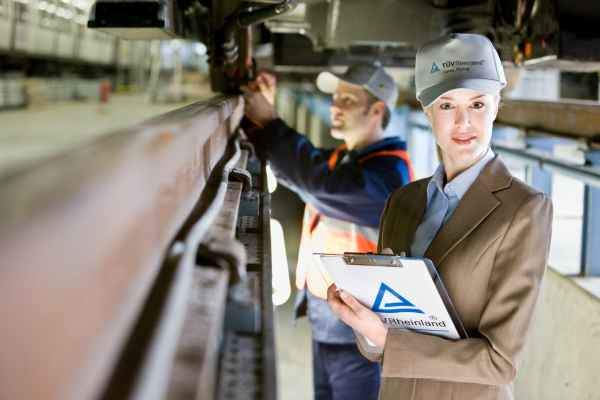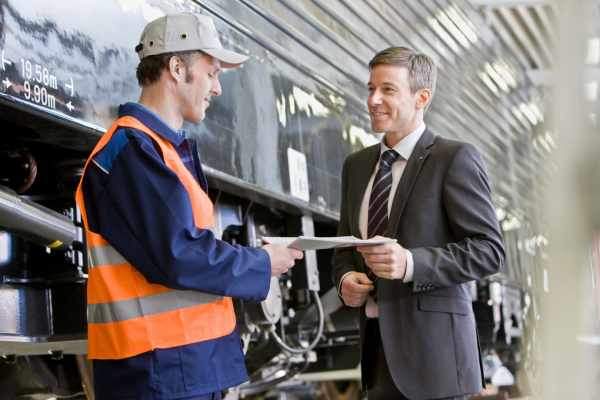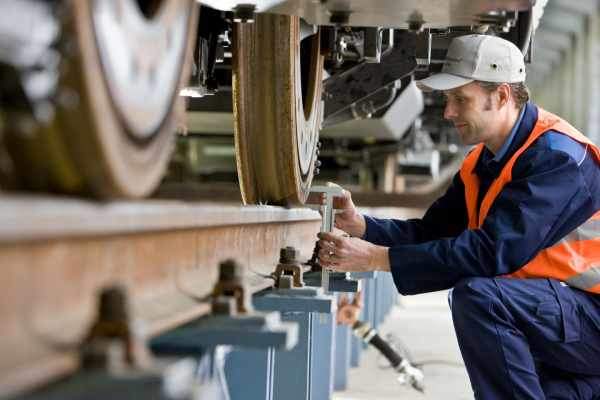TÜV Rheinland is a leading group for the provision of technical services worldwide. As a third-party certification body, TÜV Rheinland is committed to the safety of rail systems, and offers development studies, project management and independent safety assessment services to a wide range of clients, including governments, metro owners, rolling stock manufacturers, system and product suppliers, transport operation companies and traffic authorities.
Safety assessment services for rail transport, signalling and braking systems
In the rail industry, the most common method adopted to demonstrate the safety of guided transport, signalling, braking and train door systems is to engage an internationally known third-party to carry out an independent safety assessment (ISA).
ISA is recognised worldwide, based on the internationally recognised safety standards for the rail industry, including IEC 61508, IEC 62278 (EN 50126), IEC 62279 (EN 50128), IEC62425 (EN 50129), and IEC 62280 (EN 50159).
ISA includes:
- Independent safety assessment
- Independent verification and validation
- Safety management system establishment
- Safety and quality management system audits
- Safety analysis (PHA, SSHA, SHA, IHA, O&SHA)
- Risk management
- Determination or apportionment of SIL
- Software safety analysis
- Software quality assurance
- Quantified risk and analysis
- Hazard log provision
Rail system reliability, availability, maintainability and safety
TÜV Rheinland has more than 40 years of reliability, availability, maintainability and safety (RAMS) experience in the rail, aviation, automobile, defence and IT industry. TÜV Rheinland provides RAMS services during all phases of a system’s lifecycle, from the establishment of the RAMS concept / feasibility phase by determining, allocating, designing and verifying the RAMS targets during the system development phase, to the analysis and improvement of RAMS performance during the system operation and maintenance phase.
The RAMS service includes:
- RAMS management system development
- RAMS management planning
- Risk management
- Hazard analysis
- RAMS analysis
- Reliability block diagrams (RBDs)
- RAMS predictions
- RAMS tests and demonstrations
- Failure modes, effects and criticality analysis (FMECA)
EC certification for railway systems
TÜV Rheinland Group was one of the first notified bodies authorised to test for interoperability and its certificates are recognised across Europe. Cross-border non-stop railway transport is now being realised through measures to ensure interoperability between pan-European and regular railway systems.
The EC certification command is a 96/8/EC high-speed railway system or a 2001/16/EC traditional railway system. The EC certification mode has interoperable parts (H1 or BDV) and a sub-system, which is SB, SD (SF) or SH2.
The subsystems for EC certification include a WAG subsystem, high-speed subsystem, control command and signalling subsystem.
The products for EC certification include wheels, axles, wheel sets, bogies, draw gears, buffers, distributor valves, empty-load devices, slack adjusters, brake cylinders, brake blocks, balises, onboard vital computers, track-side vital computers, pantographs, lamps, onboard ERTMS, and odometers.
Welding certification service for railway vehicles and components
The welding certification service offers certification levels one to four for the wielding of railway vehicles and components. The welder qualification is according to EN 287-1/ISO 9606-2. The operator qualification is according to EN 1418 and the welding procedure qualification according to ISO 15614-1 to 2. The service has training for internal VT inspectors and provides the qualification and certification of NDT personnel.




